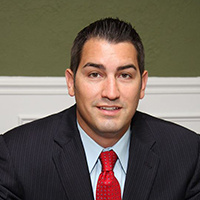Carbon County, PA White Collar Crime Lawyers
Sponsored Law Firm
-
 x
x

Click For More Info:
-
The Law Offices of Richard L. Cooper, P.A.
848 Brickell Avenue Suite 800 Miami, FL 33131» view mapDWI/DUI, Drug Trafficking, Felony Nationally Ranked Top 40 Under 40
With Richard L. Cooper you can expect a trusted confidant who will work diligently to fully understand your case and determine a road map to help you regain control of your life.
800-756-2781
Not enough matches for Carbon White Collar Crime lawyer.
Below are all Carbon lawyers.
Jason Michael Rapa
✓ VERIFIEDCriminal, Credit & Debt, Personal Injury, Bankruptcy, Car Accident
Jason M. Rapa, Esquire, is a lawyer licensed and admitted to practice law in the State of Pennsylvania and before all three Pennsylvania Federal Court... (more)
Brett Riegal
Accident & Injury, Personal Injury, Divorce & Family Law, Criminal
Status: In Good Standing
Michael Lewis Ozalas
Education, Real Estate, Wills & Probate, Divorce & Family Law, Consumer Rights
Status: In Good Standing
Matthew Jared Rapa
Landlord-Tenant, Family Law, Criminal, Collection, Bankruptcy
Status: In Good Standing
Barbara J. Fitzgerald
Other, Estate, Divorce & Family Law, Criminal
Status: In Good Standing Licensed: 18 Years
Vincent R. Garvey
Accident & Injury, Employment, Estate, Real Estate
Status: In Good Standing Licensed: 43 Years
Anthony Roberti
Power of Attorney, Real Estate, Lawsuit & Dispute, Estate
Status: In Good Standing Licensed: 53 Years
Joseph John Velitsky
Real Estate, Dispute Resolution, Immigration, Government, Personal Injury
Status: In Good Standing Licensed: 54 Years

 Richard L. Cooper Miami, FL
Richard L. Cooper Miami, FL AboutMiami Attorney at Law
AboutMiami Attorney at Law ServicesCriminal Defense
ServicesCriminal Defense

